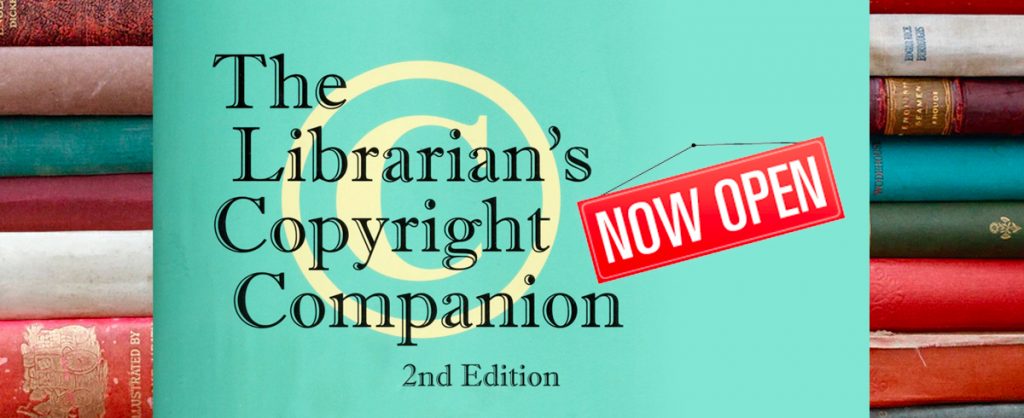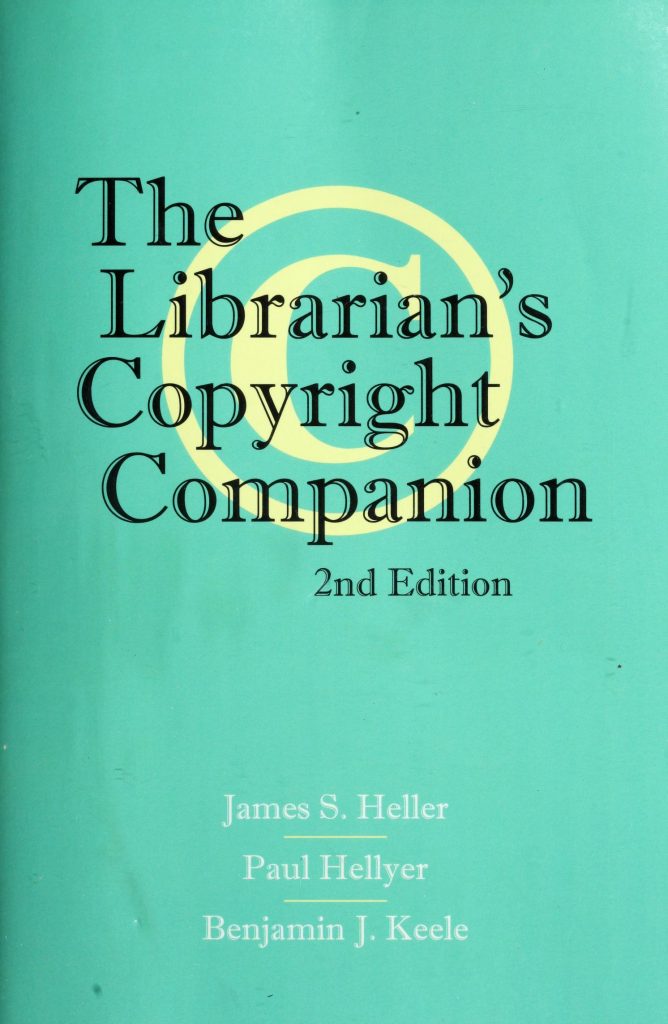
As a law librarian and author, Ben Keele wants to share his expertise on copyright with as many people as possible.
His book, The Librarian’s Copyright Companion, 2nd edition (William S. Hein, 2012), coauthored with James Heller and Paul Hellyer, covers restrictions on use of copyrighted materials, library exemptions, fair use, and licensing issues for digital media. (Heller wrote the first edition in 2004.) The authors recently regained rights to the book in order to make it open access. So after years of being available through controlled digital lending (CDL) at the Internet Archive, the book is now available under the Creative Commons Attribution license (CC BY 4.0), which means that anyone is free to share and adapt the work, as long as they provide attribution, link to the license, and indicate if changes were made.
“Nearly 10 years had passed. It’s probably been commercially exploited to the point that it will be,” Keele said. “This is what I would suggest to any faculty member. It’s sold what it will, and the publisher got the money it deserved, so we asked for the copyright back.”
To arrange the transfer of rights, Keele followed the Author’s Alliance’s advice. The California-based nonprofit provided a guide to rights reversions that he said made the process smooth and involved simple signatures by all parties. His publisher, William S. Hein & Co., was in agreement, as long as the authors were willing to give it first right of refusal for a 3rd edition.

Keele said he believes copyright is overly protective and he would advise others to do the same and make their works openly available.
“In academia, the currency is attention,” Keele said. “For me, it’s a very small statement. Copyright did for me what it needed to do: it provided an incentive for the publisher to be willing to market and produce the book. I think we achieved the monetary value we were looking for. At that point, I feel like the bargain that I’m getting from copyright has been fulfilled. We don’t need to wait until 70 years after I die for people to be able to read it freely.”
To balance the pervasive messaging from publishers about authors’ rights, this book emphasizes the aspect of copyright law that favors users’ interests, said coauthor Paul Hellyer, reference librarian at William & Mary Law Library.
“There aren’t many people who are advocating for users’ rights and a more robust interpretation of fair use,” Hellyer said. “Librarians are one of the few groups of people who can do that in an organized way. That was our main motivation for writing this book. With that in mind, we are very excited to now have an open source book that anyone can just download. That’s very much in line with our view of how we should think about copyright protection—it should be for a limited period.”
The authors have also uploaded the book into the institutional repositories at their home institutions, where it is also being offered for free.
Keele has long been a fan of the Internet Archive. In his work as a librarian at the Indiana University Robert H. McKinney School of Law, he often uses the Wayback Machine to verify citations and check to see how websites have changed over time—frequently saving him research time. He says he was pleased to be able to contribute his work to the Internet Archive to be accessible more broadly.
Added Keele: “There’s so much bad information out there that’s free. Having some good information that is also free, I think is important.”